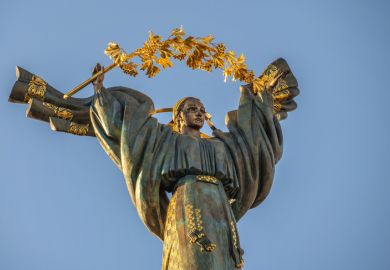The Oxford University Press is distinctly wary and chary of publishing Festschriften, no doubt for sound commercial reasons. An exception was surely worth making in this case, partly for its urgently contemporary subject matter, and partly for the high quality of many of the 23 contributions (mainly from England and North America, but also Denmark, Germany, Greece and Israel). Ancient Greek democracy, however, as the authors demonstrate, differed radically from all current versions (or caricatures) in crucial respects, above all in being direct and mass-based rather than representative and select - hence the choice of Roman terminology (capitol, senate and president) and symbolism, not Greek, by the modern founding fathers in 18th-century America (THES, January 6).
It is one of the little ironies of the history of political thought and practice, indeed, that down to the 18th or more especially the 19th century the greatest political thinkers in the western tradition, ancient as well as modern, were almost to a man (rarely a woman) anti-democratic on principle. Government of the people and for the people was acceptable, indeed for some desirable, but not government by the people - at any rate not if by "people" was meant the mass of the common people, the poor majority of a universally enfranchised (free adult male) citizenry.
In the opening paper of this volume the chequered tradition of Athenian democracy is suitably addressed by Mogens Hansen, probably the most original and certainly the most effusively eloquent student of ancient Greek democracy in its institutional aspects. The only comparably expansive essay is that by Eberhard Ruschenbusch, who likewise sketches an intellectual history of the term democracy from the fifth century bc to our own but in a European and especially German context. These two papers are grouped by the editors with nine others under the heading "Politics", the remainder with some inevitable arbitrariness and distortion under "Finance" and (religious) "Ritual".
Perhaps a case could however be made for separating out a further category of "Rhetoric", which might be interpreted generously to encompass both the formal rhetoric and ritualised verbal antagonism of the popular law courts at Athens (which together with the assembly constituted the two arenas of direct popular self-government signally absent from all post-American democracies) and the metaphorical, ideological rhetoric of tragic and comic drama, Thucydides's history, and the mass of publicly displayed official documentation and iconography. At all events, it is the papers that might fall under such an enlarged rubric, together with the portion of Robin Osborne's exemplary general introduction to the volume that deals with ritual in a broad sense, which seem to be the most substantial original contributions to our knowledge and understanding of this extraordinarily long-lasting and remarkably successful experiment in free political self-expression and self-rule.
Selection in detail is invidious, especially when it must appear androcentric. But mention should be made at least of Nigel Spivey's acute observation of some fifth-century vase painters' transformation of aristocratic Homeric heroes of yore into good contemporary democratic voters; R. B. Rutherford's inference of a Thucydidean message to the effect that an understanding of history might be good for democracy; Charles Hedrick's paradoxical claim that documentary writing in the Athenian democracy was not dangerous only as long as it did not need to be read; Simon Goldhill's hint that, since the Great Dionysia tragedy and comedy festival represented democracy institutionally, Athenian women (of citizen status but significantly less than fully active political rights) were unlikely to have been encouraged or even permitted to attend the plays; and last but not least Michael Jameson's reading of the imagery of Athena Nike's temple parapet on the Acropolis as a visual expression of th Athenians' commitment to victory at all costs.
In short, although this is a volume aimed chiefly at specialist scholars in the first instance, its ramifications and implications extend far beyond the sheltered groves of academe.
Paul Cartledge is a lecturer in classics, University of Cambridge.
Ritual, Finance, Politics: Athenian Democratic Accounts presented to David Lewis
Editor - Robin Osborne and Simon Hornblower
ISBN - 0 19 814992 1
Publisher - Oxford University Press
Price - £45.00
Pages - 408
Register to continue
Why register?
- Registration is free and only takes a moment
- Once registered, you can read 3 articles a month
- Sign up for our newsletter
Subscribe
Or subscribe for unlimited access to:
- Unlimited access to news, views, insights & reviews
- Digital editions
- Digital access to THE’s university and college rankings analysis
Already registered or a current subscriber? Login



